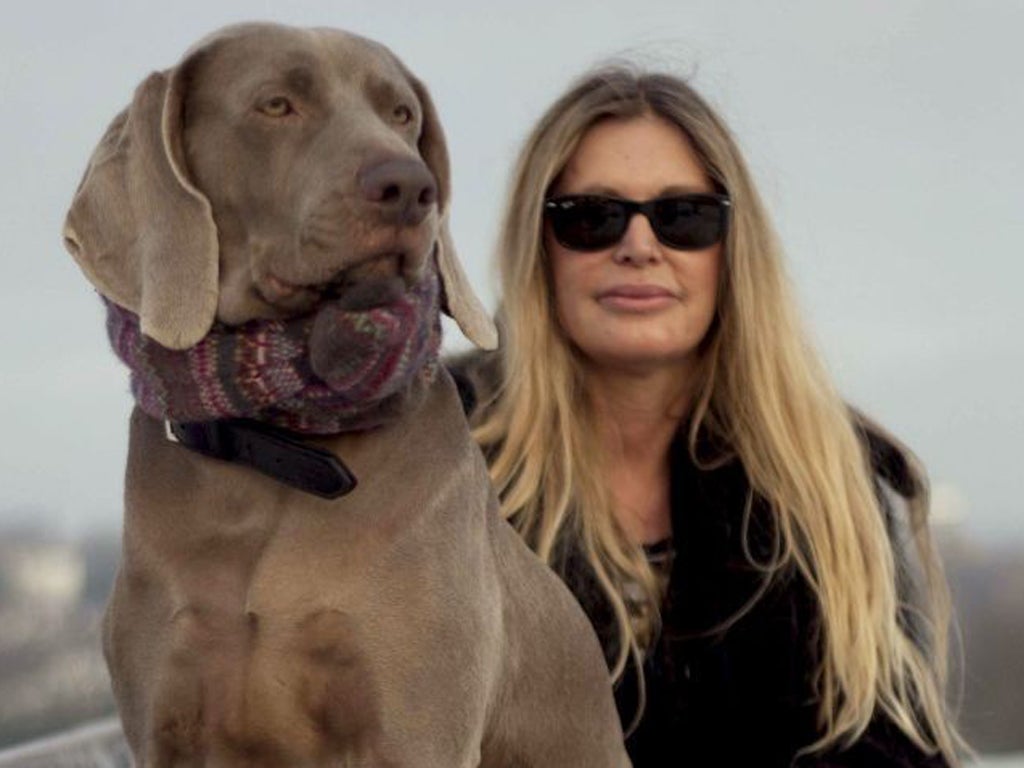Wonderland: Walking with Dogs, BBC2 Monday Getting on, BBC4, Wednesday The Great British Bake Off, BBC2, Tuesday
Dog-owners reveal their pet loves and pained souls in a sad and beautiful documentary

Your support helps us to tell the story
From reproductive rights to climate change to Big Tech, The Independent is on the ground when the story is developing. Whether it's investigating the financials of Elon Musk's pro-Trump PAC or producing our latest documentary, 'The A Word', which shines a light on the American women fighting for reproductive rights, we know how important it is to parse out the facts from the messaging.
At such a critical moment in US history, we need reporters on the ground. Your donation allows us to keep sending journalists to speak to both sides of the story.
The Independent is trusted by Americans across the entire political spectrum. And unlike many other quality news outlets, we choose not to lock Americans out of our reporting and analysis with paywalls. We believe quality journalism should be available to everyone, paid for by those who can afford it.
Your support makes all the difference.For many a put-upon Londoner, a trip to Hampstead Heath represents the ultimate mini-break: between the ponds and Parliament Hill is a bucolic playground set apart from cheek-by-armpit commutes, gurning chuggers and wheelie suitcase flotillas. No such escapism, however, was offered by Walking with Dogs, a remarkable and often deeply sad portrait of the dog-walkers who stroll daily through the capital's biggest green space.
Filmed over a few months, it featured Vanessa Engle accosting pooch-owners to find out what their pets meant to them – an apparently innocuous question that invariably opened a window on its respondents' wounded souls. Early on, a jovial vicar said his dog meant he got to "talk to a lot of people who I wouldn't otherwise talk to – it's amazing what comes out". And similarly, the film's canine premise seemed to lull Engle's subjects into a candour about their lives which they might have otherwise shied away from.
Take Warren, a boyish young dad with a rioter girlfriend in prison and who had himself served time for GBH. He relayed his violent back-story while all the time cradling, kissing and stroking his bull mastiff; the question of why he'd taken on a big, boisterous dog when he was already single-handedly caring for his son barely needed asking.
The therapeutic role played by other interviewees' pets was similarly self-evident. There was a couple who had bought their – as they termed it – "rescue dog" after losing their son in a paragliding accident; a recovering alcoholic who had named his Staffie Zen, owing to the inspiring way in which "he lives in the now"; and an ageing Bardot-esque glamour puss kept company in a homeless shelter by her Weimaraner after a domino set of unfortunate events. Here, in her darkly lit digs, the old cliché of dog being "man's (or woman's) best friend" acquired tragic resonance.
Indeed, if the film had a flaw, it lay in a certain pat selectiveness: the mix of stories, and their varying emphases, made it seem that dog ownership was typically born out of emotional trauma or deprivation, rather than say, a childhood love of Dogtanian and the Three Muskehounds or a basic appreciation of unwavering, slobbering affection. And you sensed a point being forced in the case of Marianne, a woman with a handbag-style pooch and a nascent business in frou-frou dogwear. She was variously, and leadingly, asked whether the dog was a baby substitute, if she lived on her own, if she was single, and how different it was living with a dog than a person. Despite her declaring "obviously, there is a difference ... I'm not that dotty", the inference – that she was dottier than a Dalmatian – was clear.
Which is to say that, beautifully crafted as it was, this instalment of the wonderful Wonderland strand wasn't quite best in show. I only wish we'd had more of Margot and Sue, two bullish old ladies, possibly played by French and Saunders, with a habit of finding corpses. "You two seem to come across a lot of death and destruction on the Heath," noted Engle. "Oh yes," chuckled one as if death and destruction were just another pair of dear NW3 eccentrics.
Continuing the gallows humour, Jo Brand's superlative Getting On returned for a third series. Thanks to its vérité stylings and politically inflected setting, this barely-comedy set in the NHS backwaters has oft been compared with The Thick of It, while shamefully acquiring nothing like its profile. Meanwhile, their fundamental differences are encapsulated in their respective main characters' voices: Peter Capaldi's barbaric bark and Brand's low-level drone.
Anyway, last week's opener had the central trio – Brand's nurse, Joanna Scanlan's matron, and Vicki Pepperdine's fabulously callous doctor – in a new-fangled ward but struggling with the usual mix of bureaucratic absurdities and each other. That it successfully interwove a distressing scene of an old woman having a panic attack and the line "I think you would have enjoyed getting your teeth into my vaginal atrophy" tells you all you need to know about the show's rare, nay American, sophistication.
And, finally, to the week's real talking point. Though is there anything left to say about the GBBO final, now that Twitter, Brian Sewell and my mother have had their two cents? Only that if you ever try to bastardise this, Cowell, we will set Brendan to do over your house in the style of his gingerbread one.
Join our commenting forum
Join thought-provoking conversations, follow other Independent readers and see their replies
Comments